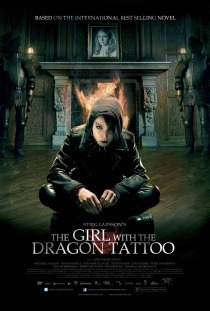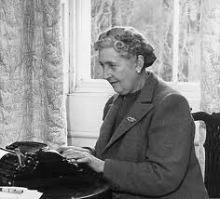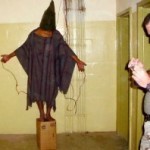Matt Rees's Blog - Posts Tagged "henning-mankell"
Crime fiction with a vengeance

The Swedish title of Part I in Stieg Larsson’s Millennium Trilogy was “Men Who Hate Women.” Which shows that you can write a huge international bestseller and not know why people would read your book.
Larsson’s U.K. publisher changed the title to “The Girl With the Dragon Tattoo.” With his original title, Larsson would’ve been a posthumous hit (he died in 2004 of a heart attack at the age of 50) in Sweden, where he was well-known as a Communist campaigner against racism and the extreme right. But he probably wouldn’t have beaten the rest of the recently popular pack of Nordic crime writers from Henning Mankell to Jo Nesbo.
It’s the title change and its focus on a character who’s both aide to the sleuth and victim of violent crime that made Larsson the second-biggest selling novelist in the world last year, after Khaled “A Thousand Splendid Suns” Hosseini.
All the other Nordic writers focus on the detective, which is after all the traditional route in crime fiction. We’ve bought 40 million Mankell novels to follow Inspector Wallander as he mopes his way to the villain’s doorstep.
You could read Larsson’s book like that, too: Mikael Blomqvist, magazine editor and irresistible ladies man, is commissioned to unravel an old murder mystery on a remote Swedish island. But it’s his assistant, a rape-victim filled with hate for her persecutors (the men who hate women), who’s really the heart of the book.
While Blomqvist is working the island case — a fairly typical “closed room” mystery, similar to the ones in which Agatha Christie’s sleuths used to inform us that “one of the people in this room is the murderer” — Lisbeth Salander is secretly setting up the vigilante vengeance that provides the book’s smooth twist in the tail.
No one reads beyond page 50 for Blomqvist. Just Salander. Which is why the work of a Swedish Communist is now being taken up by Sony Pictures for a Hollywood version probably to be directed by David Fincher (who made “Zodiac”), produced by Scott Rudin (“No Country for Old Men”) and scripted by Steve Zaillian (who won an Oscar for his adaptation of “Schindler’s List”).
So many readers warmed to Salander — the series has sold 27 million copies in 40 countries so far — that all three novels in the series have been made into movies in Sweden already. The first came out in the U.S. this month and the other two will be released in the summer.
USA Today urged viewers not to wait for the Hollywood version, calling the Swedish flick “indelibly great.” (Indelible, like a dragon tattoo, get it?) In an example of praising the atmosphere while half-overlooking a flaw in the central element of the movie, reviewer Claudia Puig wrote: “Though the relationship between Lisbeth and Mikael isn't fully developed and a few plot coincidences feel contrived, The Girl With the Dragon Tattoo artfully and intelligently fuses a punk sensibility to an epic tale.”
Maybe it’s wise not to wait for Hollywood, if it’s punk sensibility that floats your boat.
Of course, Puig’s quibble is a red alert for likely scriptwriter Zaillian. You have to buy Lisbeth and Mikael, otherwise “The Girl With the Dragon Tattoo” is really a drag.
Let’s go back to the novel.
It’s 554 pages in my British softcover version — the first book of three equally bulky volumes, in case you haven't already read them. Much of that is the sort of thing you might read in a campaigning magazine such as Expo, the publication of which Larsson was the editor. It’s written in the chatty simple language that magazine — and, increasingly, thriller — editors like, because it’s direct and lacking in imagery, so you keep turning the pages. You’ll never have to stop and say, “Hey, ‘She gave me a smile I could feel in my hip pocket.’ Nice image, Stieg Larsson.”
(You won’t, because that’s Raymond Chandler. “Farewell, My Lovely,” chapter 18.)
That’s no problem for a screenwriter. Hollywood can do its own wisecracks, and other literary imagery is usually dropped before an actor opens his lips.
Zaillian can surely cut most of the lengthy portions of the book which Larsson probably liked best. There are long disquisitions on rape statistics in Sweden and background segments on the local business scene. Take Lisbeth’s repeated rape by her legal guardian. It leads to a page and a half of this:
“Guardianship is a stricter form of control in which the client is relieved of the authority to handle his or her own money or to make decisions regarding various matters.”
There’s more: “Taking away a person’s control of her own life … is one of the greatest infringements a democracy can impose … For the most part the Guardianship Agency carries out its activities under difficult conditions … Occasionally there are reports that charges have been brought against some trustee or guardian who has…”
If Karl Marx had written “Das Kapital” in the evenings as a thriller, it might’ve had more zip than Larsson’s preachy liberal legalisms. Just so long as Engels had changed the title to “The Guy With the Dialectic Theory.”
Niels Arden Oplev’s Swedish movie version boils down to a 152-minute procedural that’s quite televisual in its look. That’s too long for a Hollywood thriller, so Zaillian will have to pare it even more.
So what’s left when you take out the tedium? (Don’t get me wrong, a lot of readers tell me they love the tedious parts of Larsson. They soothe you when you’re sick in bed or trying to take your mind off work at the beach. You forget your troubles, immersed instead in how rotten it is to be a Swedish woman.)
Which returns us to Lisbeth. She drives the narrative and, perhaps because women fall too easily for Mikael, she’s where all the sexual tension lies, too. (The book is big on titillation and the Swedish movie doesn’t skimp on a graphic rape scene.) It’s Lisbeth who’ll take you beyond the statutory confrontation with the villain. She makes the book memorable.
Better hope Hollywood doesn’t change the title.
(I posted this on GlobalPost.com)
Published on March 30, 2010 04:43
•
Tags:
a-thousand-splendid-suns, claudia-puig, crime-fiction, das-kapital, david-fincher, farewell-my-lovely, henning-mankell, hollywood, inspector-wallander, jo-nesbo, karl-marx, khaled-hosseini, lisbeth-salander, mikael-blomqvist, millennium-trilogy, movies, niels-arden-oplev, no-country-for-old-men, nordic-crime-fiction, raymond-chandler, reviews, schindler-s-list, scott-rudin, steve-zaillian, stieg-larsson, swedish-crime-fiction, the-girl-with-the-dragon-tattoo, usa-today, zodiac
'Exotic' crime fiction makes unpalatable places bearable
 “Exotic” crime fiction has taken off in the last decade. People want to read about detectives in far-off places, even if they don’t want to wade through learned histories of those distant lands.
“Exotic” crime fiction has taken off in the last decade. People want to read about detectives in far-off places, even if they don’t want to wade through learned histories of those distant lands.Many of the biggest selling novels of the last decade have been “exotic crime.” You’ll find a detective novel set almost everywhere in the world, from the “Number One Ladies Detective Agency” in Botswana through Camilleri’s Sicily to dour old Henning Mankell in the gloomy south of Sweden.
The success of my co-bloggers at International Crime Authors – with their detectives plying their trade in Thailand, Laos, and Turkey, alongside my Palestinian sleuth Omar Yussef – is also proof that this taste for international crime is more than just a publishing fad. The novels aren’t just Los Angeles gumshoe stuff transported to colder or poorer climes.
Here’s what I think is behind it:
Read a history book or a book of contemporary politics. Often you’ll find a list of the enormous numbers of people destroyed around the world by war and famine and neglect. You won’t get any sense that the world…makes sense. Crime fiction doesn’t purport to save the planet, but it does demonstrate that one man – the detective – can confront a mafia, an international espionage organization, a government and come out with at least a sliver of justice.
And justice is one of the few ideas which can still inspire.
Readers also prefer crime fiction about distant countries over so-called “literary” fiction about such places.
That’s because crime fiction gives you the reality of a society and also, by definition, its worst elements — the killers, the lowlifes — but it also gives you a sense that a resolution is possible. (See above.)
Literary fiction, by contrast, often simply describes the degradation of distant lands. If you read Rohinton Mistry’s “A Fine Balance,” for example, you probably thought it was a great “literary” book, but you also might’ve ended up feeling as abused as his downtrodden Indian characters without the slightest sense of uplift.
Crime fiction doesn’t leave you that way.
Now, that’s also true of the Los Angeles gumshoe. But the international element gives us something else to wonder about in these new novels. Not just because the scene is alien. Rather, it’s because we all trust to some extent that bad guys in Los Angeles will go to jail — or become Hollywood producers. We have faith in the system. So a detective has some measure of backing from the system, and consequently novelists have to push credibility to its limits in order to make him look like he’s taking a risk, to make him look brave.
International crime, when it’s set in the Developing World in particular, can’t be based on that same trust in the just workings of the system. The lack of law and order in Palestine, as I observed it as a journalist covering the Palestinian intifada, was one of the prime reasons I had for casting my novels as crime novels. It was clear the reality wasn’t a romance novel. Gangsters and crooked cops in the West Bank suggested the more vibrant days of the US crime novel back in the time of Chandler and Hammett, when it was much harder to argue that a city or mayor or police chief wouldn’t be in the pocket of the bad guys.
When a detective goes up against such odds in international crime fiction, it’s truly inspiring.
For books that start with a murder, that’s not what you’d expect, but it’s the reason for the success of this new exotic avenue of the crime genre.
Published on May 13, 2010 01:37
•
Tags:
a-fine-balance, alexander-mccall-smith, andrea-camilleri, crime-fiction, dashiell-hammett, detective-fiction, exotic-crime, henning-mankell, italy, laos, los-angeles, middle-east, omar-yussef, palestine, palestinians, raymond-chandler, rohinton-mistry, sweden, thailand, turkey
Overturning detective fiction: everyone's guilty in my novels
 The “Golden Age” of the detective story was the 1920s and 1930s. It was a turbulent period. In Britain, the General Strike. In the U.S., the Depression. Civil war in Spain, and in Germany the rise of the Nazis. Red scares everywhere, fascists too.
The “Golden Age” of the detective story was the 1920s and 1930s. It was a turbulent period. In Britain, the General Strike. In the U.S., the Depression. Civil war in Spain, and in Germany the rise of the Nazis. Red scares everywhere, fascists too.But the detective story was a solace to those who lived in such ugly times. In the model employed by Agatha Christie and Dorothy L. Sayers, the story ended with one criminal fingered by the detective. Everyone else turned out to be innocent. Order was restored. It was as if the writers were saying, Don’t worry about what you read in the newspapers; everything can be fixed and only a small minority are making the trouble.
In my Palestinian crime novels, the opposite is true. Everyone’s guilty. Tat’s the reality I found in Palestinian society, as disaster befell it in the last decade – an intifada, a civil war, and now a horrible stand-off between rival factions. Not any one person’s fault.
I believe that’s a better reflection of the world in which we live. My novels are entertainments, but they aren’t layered with the conservative perspective of the “Golden Age.” I don’t want readers to think that there’s nothing wrong out there, so long as the detective nabs the sole bad guy in the library.
Crime novels today are grittier than the work of Christie. They tend to be closer to the atmosphere of Raymond Chandler, who wrote that the Golden Age stories “really get me down.” But the Chandler ethos of a lone knight facing an utterly corrupt world is largely ignored.
That’s why there are so many novels these days about pedophiles and psychopaths. Such characters are beyond the pale of behavior in which we could imagine ourselves participating. To commit a crime in such novels is to mark oneself out as a deviant. As soon as the deviant is nabbed, the society can go back into its usual calm manner.
I think this is why Scandinavian crime novels have been so popular. Readers like the fact that, while the detective wrestles with the psycho, the society depicted is clearly not so very flawed. As soon as the psycho is nabbed, Sweden will return to its pleasant, polite way of life—something that’s easier to envisage than it would be in a novel set in, say, Bangkok or Gaza. Even in his recent novel, “The Worried Man,” Henning Mankell describes his detective as being no more than “worried about the direction of Swedish society.”
Worried! Can you imagine Omar Yussef, my Palestinian sleuth, being no more than worried? He lives in a society that’s engulfed in disaster. He knows everything’s going to hell and he’s aware that nabbing a single bad guy won’t change that.
The golden age method ought to have been overtaken by reality in a post-Holocaust age. Hannah Arendt wrote of the banality of evil, meaning that people don’t choose good or bad, they just go along. We’d like to see bad guys as pure evil, deciding firmly to commit horrible acts, while the truth of the Holocaust and many other dreadful events is that people are much more likely to operate in a kind of malleable denial.
It’s a vital insight. Yet I find most crime novels are written as though Hitler never happened—as if one wicked man can be blamed for what millions of others simply went along with.
Read the rest of this post on my blog The Man of Twists and Turns.
Published on September 09, 2010 02:19
•
Tags:
agatha-christie, crime-fiction, detective-stories, dorothy-l-sayers, hannah-arendt, henning-mankell, hitler, holocaust, intifada, nordic-crime, omar-yussef, palestine, palestinian, raymond-chandler, the-samaritan-s-secret
Ikea and the Crime Writer
 There are many theories as to why Scandinavian crime writers prosper in the bestseller lists. But I know why it is. Ikea.
There are many theories as to why Scandinavian crime writers prosper in the bestseller lists. But I know why it is. Ikea.I just bought a new set of Ikea shelves for my office. I’ll get into exactly how that has altered the configuration of my workspace, but at this point let me just note that it makes my writing room seem a thousand times more orderly, less cluttered. As any feng shui expert would tell you, a disorganized room will yield fractured thoughts and fill the mind of its occupier with distraction. For a writer who needs to focus on his manuscript and whose manuscript requires a consistent vision, that’s a bad thing.
So these shelves, produced by a company based in Sweden, have no doubt created the clean, neat spaces Scandinavian crime writers like Henning Mankell and Jo Nesbo need to write their clean, neat stories.
I was in need of a little neatening in my office, because my research had started to create clutter. There were piles of books on Mozart, music and the Austrian Empire related to my forthcoming historical crime novel MOZART’S LAST ARIA. Then new mountains of books and documents for CARAVAGGIO ON FIRE, my novel about the Italian artist which will be out in a year and a half.
But that’s not all. For my Mozart book, I learned the piano. So suddenly there’s a piano in my office. For Caravaggio, I’ve been learning to paint with oils, so there’s an easel and painting implements and canvases jostling for space with my guitars and bass guitars and amplifiers (those aren’t research; it’s a hobby).
Add to that the large numbers of foreign editions of my books I’m delighted to receive when I’m published in Indonesia and Romania and Iceland, but which I’m unable to give to friends due to the fact that I only know one Icelander, my Romanian landlord already read the book, and the only Indonesian I know is my editor and of course he has already read the book, too.
Read the rest of this post on my blog The Man of Twists and Turns.
Published on December 09, 2010 01:07
•
Tags:
caravaggio, caravaggio-on-fire, crime-fiction, feng-shui, henning-mankell, iceland, ikea, indonesia, italy, jo-nesbo, mozart, mozart-s-last-aria, romania, sweden, the-guardian, writers-rooms, writing
For Arabs: democracy, then crime fiction
 Crime fiction may not be the first thing on the minds of the protesters taking to the streets for democracy across the Arab world. But one of the offshoots of the downfall of Arab dictators is sure to be an explosion of thrillers and mysteries.
Crime fiction may not be the first thing on the minds of the protesters taking to the streets for democracy across the Arab world. But one of the offshoots of the downfall of Arab dictators is sure to be an explosion of thrillers and mysteries.Until now there has been almost no crime fiction written in Arabic. A couple of little-known writers in Egypt and Morocco have contributed old-fashioned Agatha Christie-style cosies (“One of the people at this oasis is the killer.”) The best Arab detective writer has been Yasmina Khadra, whose series about Inspector Llob is supremely gory and noirish. But Khadra writes in French from exile in France.
I believe Arabs have eschewed crime writing because it’s a democratic genre. One man wants to find out something that a big organization – the CIA, the mafia, the government – wants to keep secret. It’s easy to see why Hosni Mubarak probably wasn’t a fan of Raymond Chandler.
For people who live in democracies, it’s easy to find fiction credible that suggests a man can investigate – and once he fingers the bad guy, the bad guy will be punished. That’s why Scandinavian crime fiction by Henning Mankell et al is so popular: the Nordic societies have us all convinced that an eruption of violence, crime or murder, will soon enough be resolved and life can go back to its usual extreme orderliness.
Not so for the Arab world. Arabs have a deep sense of fatalism. Not only do they lack faith that the bad guy will be punished, they’re quite sure the bad guy will prosper. He’ll drive his Mercedes to his villa directly from the government offices or state-run companies where he rakes off his big take. The ordinary guy will be left to live on $2 a day.
When I came to write my series of Palestinian crime novels, one of the challenges was to make the format of the crime novel work in an environment where law and order didn’t really function or protect ordinary citizens. I did it by demonstrating that while my sleuth, Omar Yussef, might nail one bad guy at the end of the book, he would be left with an awareness that there were many other guilty men who had escaped him. As one German reader put it to me at a book festival, “I like your books because, in the end, everyone’s guilty.” The reason people across the Arab world are rising up is because they don’t want to share the guilt and shame of their broken, repressed societies any more.
Read the rest of this post on my blog The Man of Twists and Turns.
These observations are true even for countries where there isn’t what we’d call a Western-style democracy – which I’d characterize as a democracy where corruption is either extremely well-hidden or disguised as a stock market in which all can supposedly participate. Take Russia, for example. Clearly not the democracy its people might dream of. But nonetheless one in which opposition journalists – at considerable risk to themselves – do function in the face of the state apparatus and its corrupt overlords.
In South Africa, there was almost no local crime fiction under apartheid. When that changed, there was an explosion of crime writing.
The situation in the Arab world is changing now. Which shows that there’s a thirst for democracy, for accountability – and, therefore, for crime fiction.
Published on February 24, 2011 00:55
•
Tags:
agatha-christie, arabs, crime-fiction, democracy, henning-mankell, hosni-mubarak, middle-east, omar-yussef, raymond-chandler, writing, yasmina-khadra
Unpolished Fleming and Paranoid Mankell
 I’ve seen two things in the last week that allowed me to compare something
I’ve seen two things in the last week that allowed me to compare somethingof the way crime writers used to appear in public and their present avatars.
It only made me wish for the good old days even more than I used to.
The comparison is between: a delightful radio chat on the BBC in 1958 between Raymond Chandler and Ian Fleming; and a load of paranoid weirdness from Henning Mankell.
First, Chandler and Fleming. Listen to their talk. I rarely bother listen to
an entire half hour of anything online, but I’m telling you this is
beautiful. Both of them are unpolished as all hell. For anyone who’s been to
a book fair and seen the well-honed wisecracks and calibrated personae of today’s authors, this’ll be refreshing.
When Fleming asks Chandler to explain how a hit is done in America (which
surely seemed like a very dangerous place to the average BBC listener of
half a century ago), gruff old Ray puffs on his pipe and spins an unlikely tale of gunmen brought to New York from that den of iniquity, Minneapolis. It
impresses Fleming so much that he refers to it in summing up the broadcast
as something very enlightening and shocking and underground that Chandler
has given us.
But most of all from Chandler’s side there’s the news that he intended
another Marlowe novel in which the great shamus would be married (see the
end of “Playback”) and, though he’d love his wife, he’d be frustrated by her
friends and the ease with which he lives.
Fleming, meanwhile, is very British and self-deprecating, pointing out
several times that his novels are pale shadows of what Chandler writes. In
turn, Chandler is amazed that Fleming writes a novel in two months during
his annual Jamaica vacation, having never written one faster than three
months himself. He then opines that “you starve 10 years before even your
publisher knows you’re any good.” Amen to that.
This truly beautiful conversation – hearing the voices of these fellows is
priceless in itself – was in stark contrast to Henning Mankell’s appearance
in an Israeli newspaper last week.
The starting point for Mankell’s piece was his deportation from Israel a
year ago. He was among the pro-Palestinian activists aboard a flotilla of
ships headed for Gaza, which was intercepted by Israeli commandoes. Aboard one of the ships, the commandoes and activists fought and nine activists were killed. Mankell was among those brought back to Israel on the boats and then deported.
His article in Ha’aretz last week goes through the story of a Facebook page
opened in his name. It declared support for the Lebanese Islamists of
Hezbollah and other positions he claims not to share. Facebook took the site
down twice at Mankell’s request. Mankell wonders who was behind the Facebook page.
To anyone who’s been in the Middle East, the most obvious answer is: a
Palestinian supporter saw that Mankell was on their side and decided to
hijack his name for some other causes to which he or she thought Mankell
might be inclined. Or at least that they’d be causes to which readers might
assume Mankell was inclined, knowing his position on Palestine.
But no. With a circuitous logic never apparent in his plodding Wallander
novels, Henning tells us that he heard the Israeli government wanted to use
social media to attack its enemies. Is this behind the “Henning Mankell”
Facebook page? Twice he writes: “Who would benefit from this?”
Read the rest of this post on my blog The Man of Twists and Turns.
Published on June 23, 2011 05:46
•
Tags:
bbc, crime-fiction, gaza, gaza-flotilla, henning-mankell, ian-fleming, inspector-wallander, israel, james-bond, palestine, philip-marlowe, raymond-chandler
Sicko Writing: Is Crime Fiction Too Gory?
 When I worked as a journalist at a major US magazine, it was clear that readers didn’t respond to hard news. They wanted features. Not fluffy features. Serious features. But they'd had enough of news stories about what happened that week.
When I worked as a journalist at a major US magazine, it was clear that readers didn’t respond to hard news. They wanted features. Not fluffy features. Serious features. But they'd had enough of news stories about what happened that week.What did the editors do? They ordered correspondents to write hard news. Because they didn’t care what readers wanted. They wished to appear as serious journalists before their peers, and serious journalists write tough hard news stories. Even if no one wants to read them.
I was put in mind of this as I listened to a BBC Open Book podcast about whether crime fiction has become too gory. Specifically whether descriptions of violence – and the torture of women in particular – have gone too far. I interpret that to mean: whether the violence is indulged for its own sake, rather than for the sake of plot or character development.
After listening to the show I felt as though I had been tuned in to a discussion by European liberals about multiculturalism – or some other subject on which all “decent” types agree and then simply talk about the nuances of their shared position, rather than ever saying “hey, there’s a case to answer here.”
I’ve seen a great deal of violence in my life. I’ve been a foreign correspondent in the Middle East for 15 years. I’ve seen people shot, blown up, burned to death, horribly maimed, and I’ve been threatened myself. I take no pleasure in that and I have no sympathy for those who would treat others’ suffering as entertainment. Perhaps that’s why I believe there is very much a case for crime fiction to answer: too many writers and presumably readers appear to be indulging in psychotically prurient interest.
That isn’t to say there’s no violence in my novels. But I’m very careful about its purpose, and I don’t require it to take place in front of the reader’s eyes, as it were. I try to think about Chandler’s great dictum on Hammett – that he put murder back in the hands of those who actually commit it in real life. No doubt some of those people are sadists, but most are criminals and most murders are committed with dispatch. That’s how I like it to be done in my books: by a criminal, not a psycho, and quickly, as a piece of business.
Read the rest of this post on my blog The Man of Twists and Turns.
Published on August 04, 2011 06:16
•
Tags:
bbc, crime-fiction, henning-mankell, jo-nesbo, mariella-frostrup, mark-billingham, open-book, tess-gerritsen



